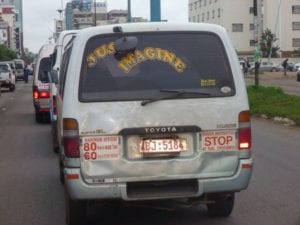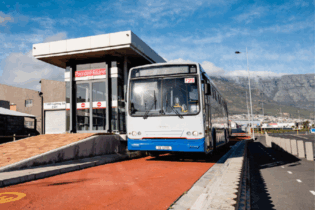When commuter omnibuses were introduced in the early 1990s to break the Zimbabwe United Passenger Company urban transport monopoly, there were celebrations from the commuting public, but little did they know these kombis would soon turn into death traps.
Regarded as a swift way of commuting, Toyota Hiace and Nissan Caravan kombis have ironically become a faster way to death. Police blame greed from operators as the main reason kombis have turned out to be a risky mode of transport particularly on long-distance routes. Police have responded to the carnage by launching frequent operations to arrest unlicensed drivers and impounding vehicles, but this has not stemmed fatal accidents. Kombis have become coffins-on-wheels because no real care has been taken to analyse the suitability of minibuses for passenger transportation.In their country of origin, Japan, minibuses are not used to carry passengers, but light goods. The modification done on the vehicles when they are imported into the country makes them extremely unsafe for passengers. Transport operators in the country have adapted the goods vehicles — mostly Toyota Hiace panel vans — into passenger-carrying vehicles by simply adding seats — without considering safety requirements. The conversion is simple installing seats and windows. The drive train and suspension, designed largely to carry much lighter loads, are left as they are. A government probe in South Africa in 2009 on later model Toyota panel vans, found that the converted vehicles were a safety risk because their floors were not thick enough, the seats were not properly anchored to the floor and there were no roll-over protection bars. Fatalities in the event of a kombi rolling over in an accident are high because there is too much unpadded metal in the interior of the vehicle. These become death traps because there are no seatbelts and passengers are thrown onto protruding metal causing serious injury or death. The president of the newly-formed Urban Commuters’ Council of Zimbabwe, Simbarashe Ngarande, said the ex-Japan kombis were contributing to a large number of fatal accidents because they were not meant to carry people. “We buy them because they are cheap,” said Ngarande. “They come with problems and it is difficult to maintain them so that they are fit to carry people. We are pleading with the government to open lines of credit so that we buy vehicles that are suitable for passenger transportation,” Ngarande said. The poor safety standards in most of the vehicles is generally ignored as the Vehicle Inspection Department has failed to develop clear safety standards for vehicles to carry passengers and added to this, corrupt officials have certified vehicles as roadworthy, after receiving money from operators. The Department of Transport in South Africa, on the other hand, two years ago allowed transport operators to upgrade panel van conversions by strengthening the seat and seatbelt anchorage, in order to ensure compliance with set safety requirements. The process was closely monitored and co-ordinated by the Department of Transport. The police and regulators in Zimbabwe have, however, failed to address the safety standards of passenger vehicles. The poor safety standards and an insatiable desire to cash in at the slightest opportunity has seen kombi crews overloading, speeding and breaking other road regulations — causing loss of life in otherwise unlikely circumstances.
“Accidents involving commuter omnibuses, particularly kombis, are increasing at an alarming rate,” senior assistant commissioner commanding traffic Martin Chari recently said.
“People are dying and getting injured in these accidents besides the inevitable loss of property. It appears passenger-carrying service providers have sacrificed the value of life and treated it as a commodity for quick monetary returns,” he added. Chari’s observations came after a series of accidents involving kombis claimed over 50 people since March this year, including another one involving President Robert Mugabe’s motorcade that killed one person and injured 15. Officials from the National Traffic Safety Council public relations department refused to comment, saying they needed to be cleared with their superiors first.But another official, who spoke on condition of anonymity, said he was pained because he thought the police were part of the web that had resulted in serious loss of life. “Imagine, what you make of it if an unroadworthy kombi is involved in an accident after passing through several roadblocks. It speaks volumes,” he said.
He said the government should consider introducing new legislation setting minimum standards for passenger service vehicles. While police blame passenger transport operators and the reckless behaviour of their drivers, many people think corruption within the police ranks was the reason accidents were occuring more frequently than before. A Harare resident Mike Chikwama said police officers were now big players in the transport industry and their kombi crews were the most reckless because they have a shield in the form of their masters. But Chari denied the allegation saying police treated everyone who breaks road regulations uniformly — including their own workmates who run kombis. Meanwhile, Police Commissioner-General Augustine Chihuri yesterday threatened to clamp down on kombi drivers who disregard road traffic regulations, putting at risk lives of other road users and thousands of passengers. Speaking at a graduation passout parade for 441 officers at Morris Depot recently, Chihuri said the police would not relent in their endeavour to ensure sanity on roads. “Let me strongly warn commuter omnibus drivers that they are not above the law, hence police will not relent in enforcing traffic regulations. We will continue lobbying for traffic regulation violators to be given deterrent sentences,” Chihuri said. “. . . Allow me to register my disappointment at the rate at which we are losing, as a nation, productive time and precious lives through traffic congestion and road carnage respectively. It is quite sad to note that public transport drivers are flouting traffic regulations through over-speeding, disobeying traffic signals, picking passengers at undesignated points and overloading, among others.” Chihuri added: “. . . most accidents are unfortunately attributed to human error. My passionate appeal to members of the public is for them to appreciate that, like containing crime, ensuring road safety is not just a preserve of the police, but a role which should be actively discharged by all and sundry. “As we travel, let us all play the role of traffic police officers to guarantee safety and orderliness on our roads.” Source: http://www.newsday.co.zw







